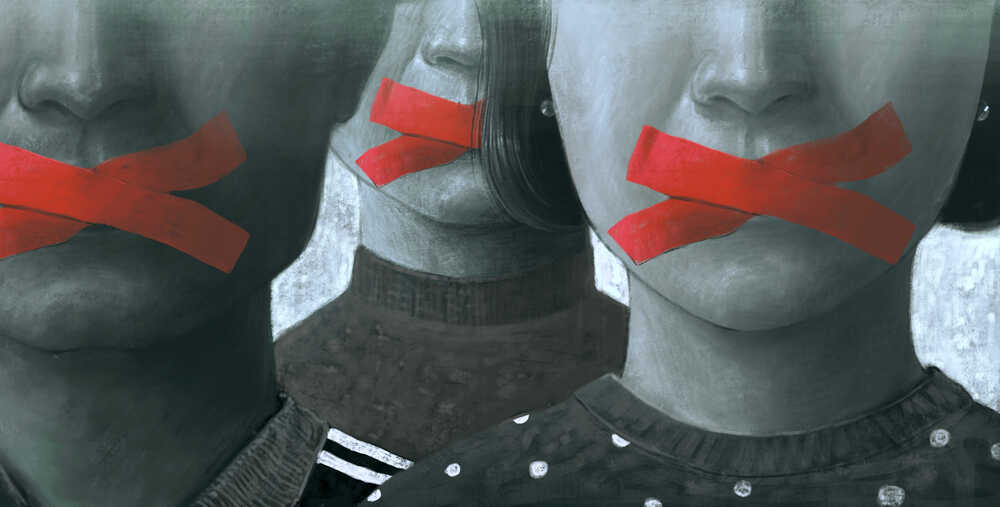In democracies, the idea of free speech has long been seen as essential to both the preservation of all human rights and the operation of democracy. An inherent imbalance of power arises when certain persons or groups are able to suppress the speech of others. This enables them to censor any opposing viewpoints that might contradict their stance and control what information and thoughts are shared. By allowing people to challenge potentially damaging policies and reveal instances of corruption, free speech plays a crucial role in holding those in positions of control accountable. The maintenance of free speech is highly valued in democracies since it is essential to maintaining the openness and liberty that these societies are built upon.
Or do We?
The fact that a large portion of the populace in democracies appears to have lost interest in free expression is alarming. They don’t mind giving up their freedom of speech in front of authorities, institutions, and large tech firms. They contend that in order to protect us, these organizations ought to regulate the content we view.
The internet, which has developed into a global public forum, is the primary location where this transformation is taking place. Limiting free speech online is necessary, according to governments and others, to prevent “disinformation” and “hate speech.”
In this post, I’ll discuss some of the recent laws that have been passed globally as well as how laws prohibiting misinformation are established. Increased internet information restriction may result from these laws.
How to Make Censorship Laws:
Step 1: Say there’s a big danger to democracy and human rights.
Step 2: Say your solution will protect democracy and human rights.
Step 3: Quickly pass laws that limit freedom and rights.
The internet has always had lies, fake videos, and other misleading stuff. It’s a big place, so there’s room for bad things, like crimes and evil leaders. But the internet also lets everyone share ideas worldwide. It’s a place for open talk.
 When we control internet info, we need to balance stopping bad stuff while keeping freedom. Sadly, many new internet laws focus too much on limiting free speech. The people making these laws say fake news and hate speech are big threats to democracy and rights.
When we control internet info, we need to balance stopping bad stuff while keeping freedom. Sadly, many new internet laws focus too much on limiting free speech. The people making these laws say fake news and hate speech are big threats to democracy and rights.
Important organizations warn about serious dangers from false information:
“The spread of lies, propaganda, and fake news can divide people, promote extreme violence and hate, and even weaken democracies and trust in democratic ways.”
—Council of Europe
“The world needs to deal with the big damage caused by hate and lies online.”
—United Nations
“Bad speech and false info online have led to violence and even big disasters.”
—World Economic Forum (WEF)/The New Humanitarian
These groups argue that a comprehensive international strategy is necessary to combat hate speech and false information. They think that this strategy will uphold human rights, strengthen democracy, and safeguard those who are most in need.
The UN considers the freedoms of expression and information to be essential human rights. It’s been claimed that information should be available to everyone, no matter where they live. But the UN also says hate speech and misinformation are so bad they might violate people’s rights. For example, they assert that hate speech is the cause of heinous crimes like genocide.
The UN considers the freedoms of expression and information to be essential human rights. It’s been claimed that information should be available to everyone, no matter where they live. But the UN also says hate speech and misinformation are so bad they might violate people’s rights. For example, they assert that hate speech is the cause of heinous crimes like genocide.
Globally, there is a lot going on right now with censorship laws. Some organizations argue that we should suppress hate speech and disinformation because they can contribute to horrific events like genocide. They want governments to seize power and impose stringent regulations.
Since it is difficult to enact legislation in the US that restrict free speech, the government instead collaborates with other organizations to put pressure on social media corporations to remove content they find objectionable. As a result, the Censorship-Industrial Complex is created.
New regulations in other countries, including as Europe, the UK, Australia, and Canada, offer governments and large corporations more authority to regulate content on the internet. Some think it may restrict free speech too much, even though they claim it’s to stop incorrect information.
Even global organizations such as the World Health Organization advocate on governments to take action against misleading health information on the internet. Yet some claim that this could damage democracy by resulting in excessive censorship.
All things considered, the trend toward more censorship laws is concerning for democracy and free speech in the future.








